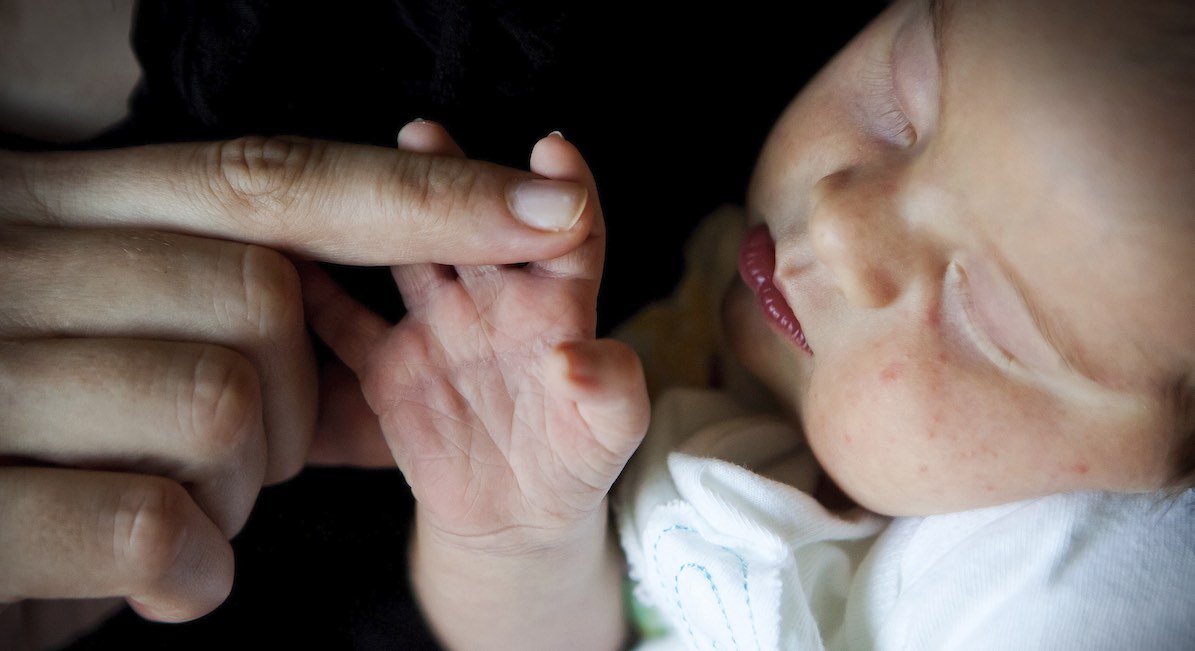In an essay for Love What Matters, Holly Camarda recounted the callous way medical staff delivered her son’s Down syndrome diagnosis.
Camarda said her pregnancy with her son, Forrest, was easy — he was so mellow and calm inside the womb that she felt sure something was wrong. Doctors waived off her concerns, though, reassuring her that every child is simply different. “I chose not to have any genetic testing, due to cost, as well as our spiritual beliefs,” she wrote. “If something was wrong, we weren’t going to do anything about it. My husband and I had prayed for another child. We were older and wanted more kids. We would take what we were given and be grateful for whatever blessing we were given by God.”
Eventually, it came time for her delivery, which went terribly. “When Forrest was born via scheduled cesarean section, I heard the nurse say, ‘Oh sh*t!’ and she sounded worried,” she recalled, as quoted by CafeMom. “Forrest was whisked away, and I went to recovery.”
Not long afterward, the pediatrician arrived, holding a flyer for the Special Olympics to announce they believed Forrest had Down syndrome.
“Next, he had a flyer about the Special Olympics. He verbalized his concerns about Down’s. My husband was livid,” she said, adding, “We were both shocked and astounded at the news, as well as the way it was delivered. How do you tell parents their child may have a genetic defect with a flyer for the Special Olympics in hand? We were angry and devastated. We just wanted to hold our baby. He was perfect, and a blessing we had prayed for.”
READ: The doctor called her ‘it’: Parents recall horrible Down syndrome diagnosis experiences
When Camarda was finally able to hold Forrest, she could tell he was different. “He felt odd to the touch, doughy on his muscles, sort of floppy, and he didn’t flex toward his body quite like expected,” she said. “His ears were also off, sticking out, super flexible, and a little low. I put a crocheted hat on his head that I had made for him before birth to keep him warm. In this case, I also was trying to lay his ears flat. I knew there was a problem, but didn’t want it to be true. I had dreamt of what he would be. It occurred to me that none of that would come to fruition.”
Ten years later, Camarda has learned that her fears were needless. Forrest has virtually no major medical problems, and he’s happy and healthy. “He always has a hug and a smile,” she said. “He may not be the child I thought I was getting, but he is a blessing beyond what I ever imagined.”
The Camarda family is far from alone in their experience. The Down Syndrome Diagnosis Network (DSDN), a support and advocacy organization that aims to change how a diagnosis is delivered, has frequently reported on the negative experiences families have. Heather Bradley, a member of the Board of Directors and former president of DSDN, spoke about an experience she had during an American College of Obstetricians and Gynecologists District meeting in Wisconsin.
“In speaking with a Maternal-Fetal Medicine specialist from Minnesota, he said that delivering a Down syndrome diagnosis was like giving someone a ‘crap sandwich,’” she wrote on Facebook. “When a new or expectant parent is just told the news their baby has Down syndrome and the first words are ‘I’m so sorry’ or ‘When should I schedule the termination?’, what is that physician saying about their CHILD? It most definitely tells them that their child IS a ‘crap sandwich.’”
A survey likewise found that just 11% of women report having a positive prenatal diagnosis experience, while another survey found 13% of doctors admit to purposely emphasizing the negative aspects of Down syndrome in an effort to convince parents to abort their babies.
“Like” Live Action News on Facebook for more pro-life news and commentary!







